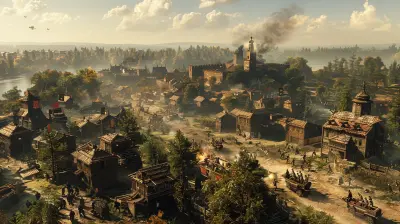Building Blocks of Creativity: Analyzing Crafting Systems in Sandbox Games
23 September 2025
When was the last time a video game truly let your imagination run wild? I’m talking about that feeling of being handed a blank canvas and all the tools you could ever need to create something extraordinary. Sandbox games have been doing just that—giving players the ultimate playground for creativity. And at the heart of it all? Crafting systems. These intricate mechanics allow us to build, shape, and create in ways that make these games addictive, rewarding, and, frankly, unforgettable.
But what is it about crafting systems that captivate us so much? Why do we love scavenging for materials, piecing items together, and creating entirely new things out of nothing? Let’s roll up our sleeves and dig into the nuts and bolts of what makes crafting systems the backbone of creativity in sandbox games.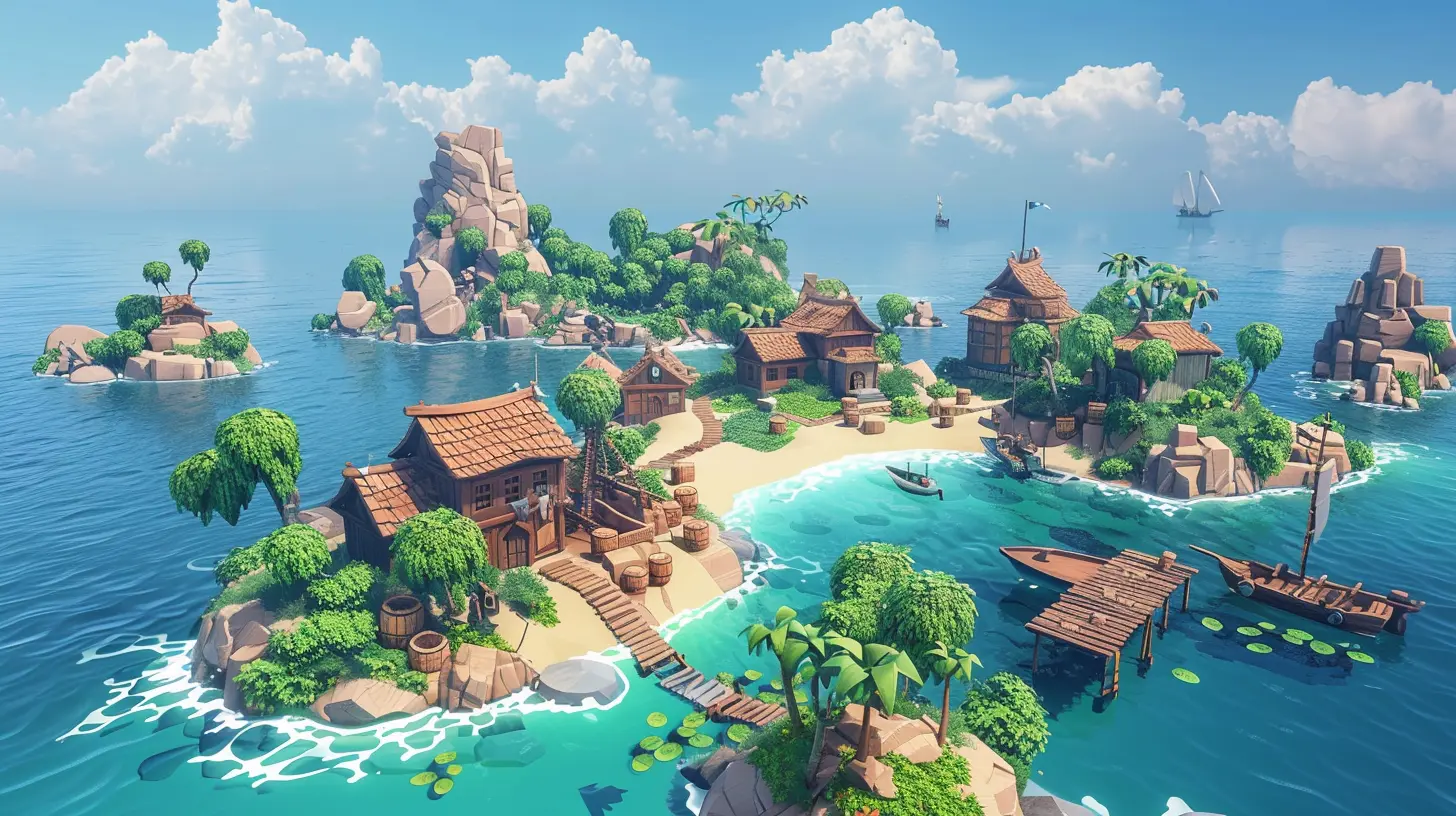
What Are Sandbox Games Anyway?
Before we dive into the magic of crafting systems, let’s make sure we’re all on the same page about sandbox games. Picture this: you’re dropped into a sprawling, open-ended world with almost no rules. No level-by-level constraints, no “go-here-and-do-this” hand-holding. Just you, the world, and endless possibilities.Sandbox games thrive on freedom. Think Minecraft, Terraria, or even The Sims. They hand you the reins and leave it up to your imagination to decide what you want to do. Build a castle? Sure. Craft an underground bunker? Go for it. Sculpt a pixel-perfect replica of your favorite TV character? Absolutely, if that’s your thing.
These games are less about "winning" and more about participation and creativity. And crafting systems? Oh, they’re the secret sauce that turns sandbox games into digital playgrounds for the creative mind.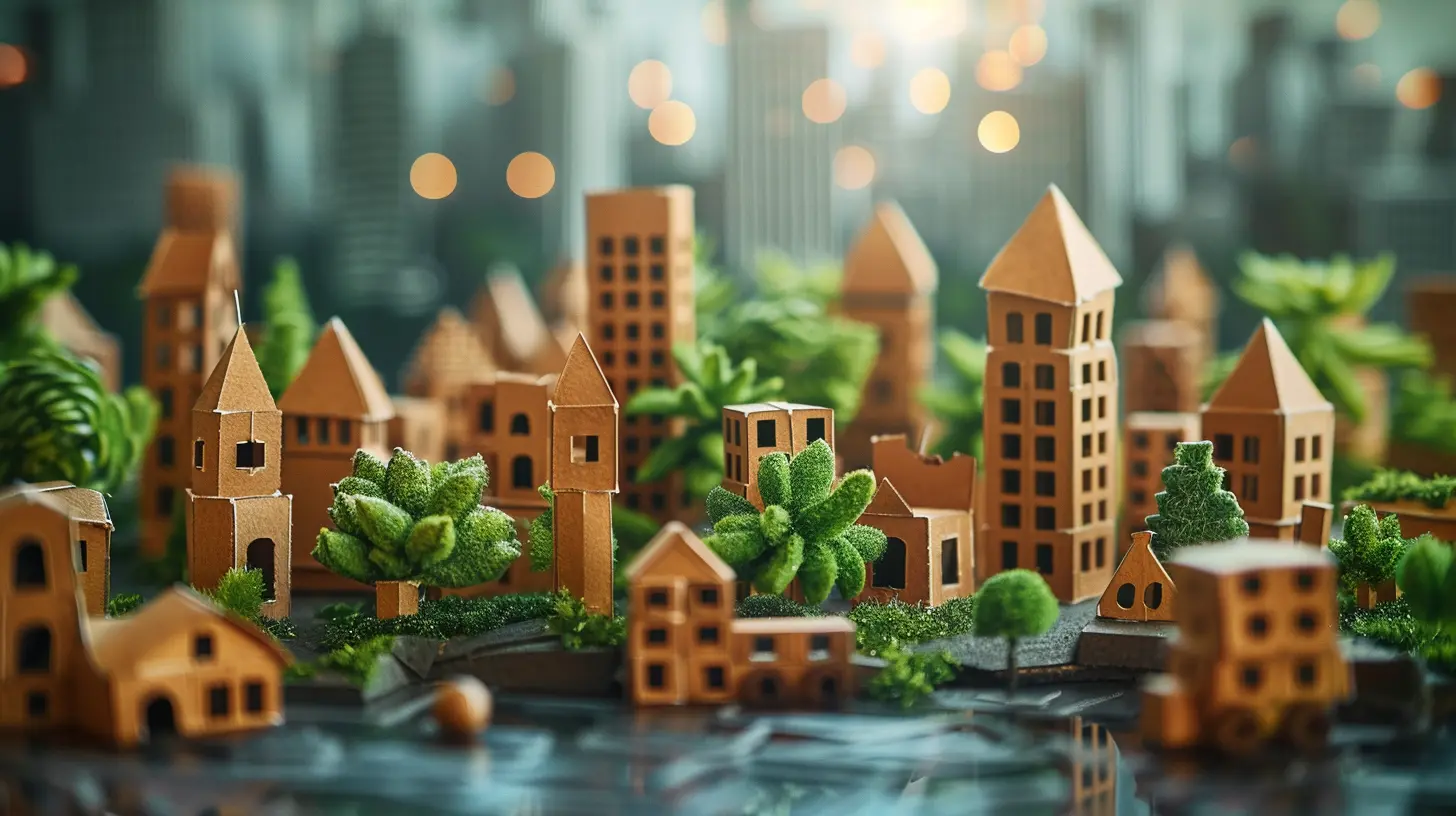
Why Do We Love Crafting Systems So Much?
You can’t talk about sandbox games without mentioning crafting systems—it’s like peanut butter without jelly. But what is it about collecting materials and turning them into something new that tickles our brains so much?The Thrill of Discovery
Crafting systems are like a treasure map. You start with a blank slate, and every new recipe or blueprint feels like unlocking a new piece of the puzzle. Ever felt that little rush when you realize that combining wood and stone makes a pickaxe? It's literally your brain lighting up because you’ve learned something new.Instant Gratification Meets Long-Term Goals
Crafting is addictive because it gives you a constant sense of achievement. You collect some sticks and stones, and—bam—you’ve got yourself a tool. But it also feeds into long-term goals. Want to build a massive fortress? Better start crafting stronger materials and advanced tools. It’s a perfect balance between quick wins and big-picture planning.It’s Personal
Let’s face it: crafting systems make your gameplay experience yours. No two players’ worlds look the same in these games because everyone’s crafting choices are different. You might be all about functional builds, while someone else might be crafting stunning visual masterpieces. Either way, it’s personal, and that’s what makes it powerful.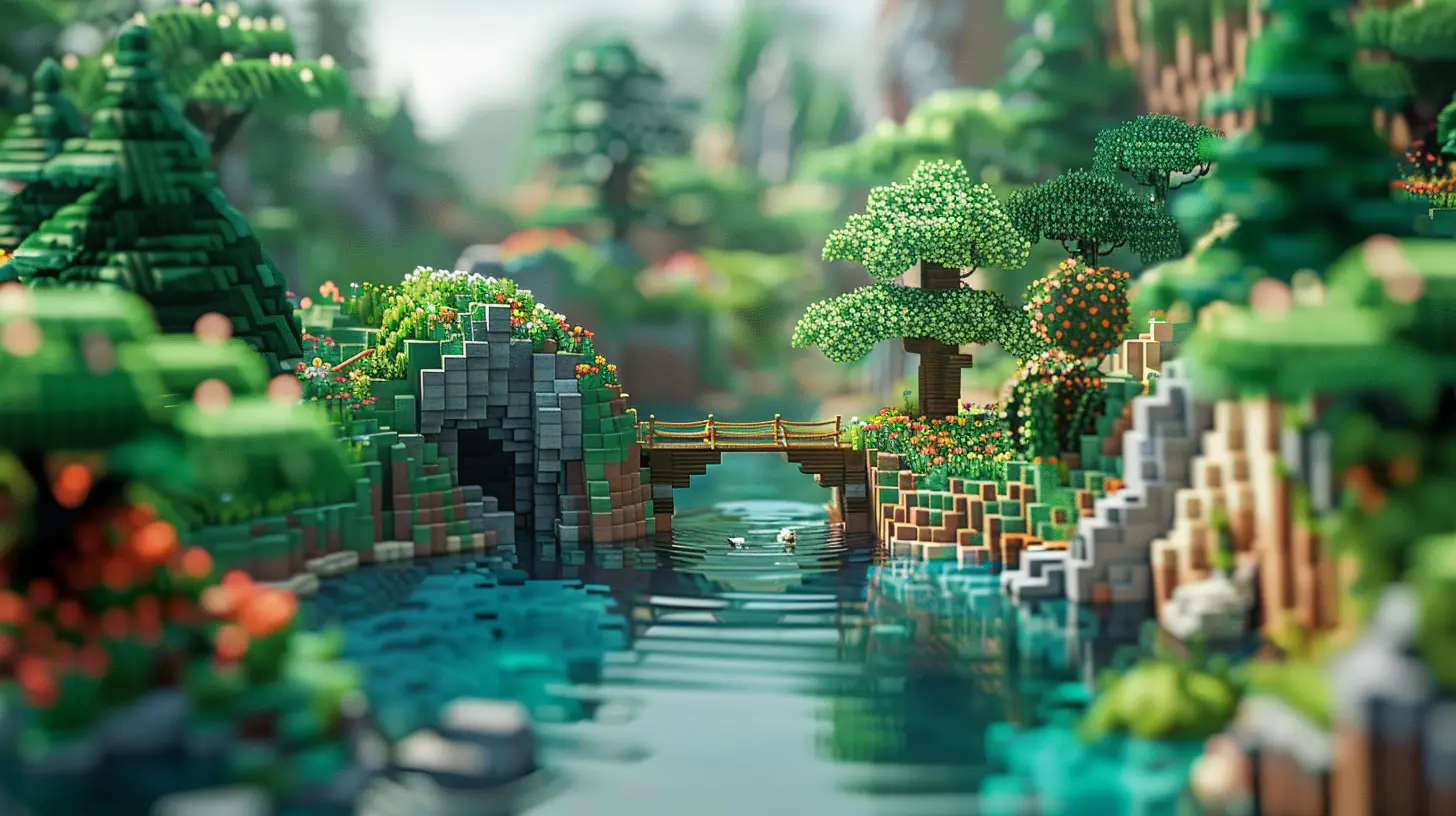
Types of Crafting Systems in Sandbox Games
Not all crafting systems are created equal. Some games keep it simple, while others… well, they make you feel like you’re working toward a Ph.D. in virtual engineering. Let’s break down the different types of crafting systems you might encounter in sandbox games.1. Basic Crafting
This is straightforward and beginner-friendly. You gather raw materials (think wood, stone, iron) and combine them to create simple items like weapons, tools, or building blocks. Games like Minecraft pioneered this system, where crafting feels intuitive and easy to pick up.2. Blueprint-Based Crafting
In this system, you need to find or unlock blueprints to craft specific items. Games like Subnautica thrive on this type of crafting—you collect resources but are limited by what your blueprints allow you to create. This adds an element of progression and discovery.3. Modular Crafting
Modular crafting is where things get spicy! Games like Scrap Mechanic and Besiege take it to the next level. Instead of crafting single items, you’re combining parts to create complex contraptions. Want to build a functioning battle tank? Go for it—but you better understand how all those gears and wheels work!4. Automated Crafting
Ah, crafting meets automation. Games like Factorio and Satisfactory thrive on this. You start small, crafting things by hand, then eventually build entire factories to automate the process. It’s crafting on steroids and perfect for players who love optimization and efficiency.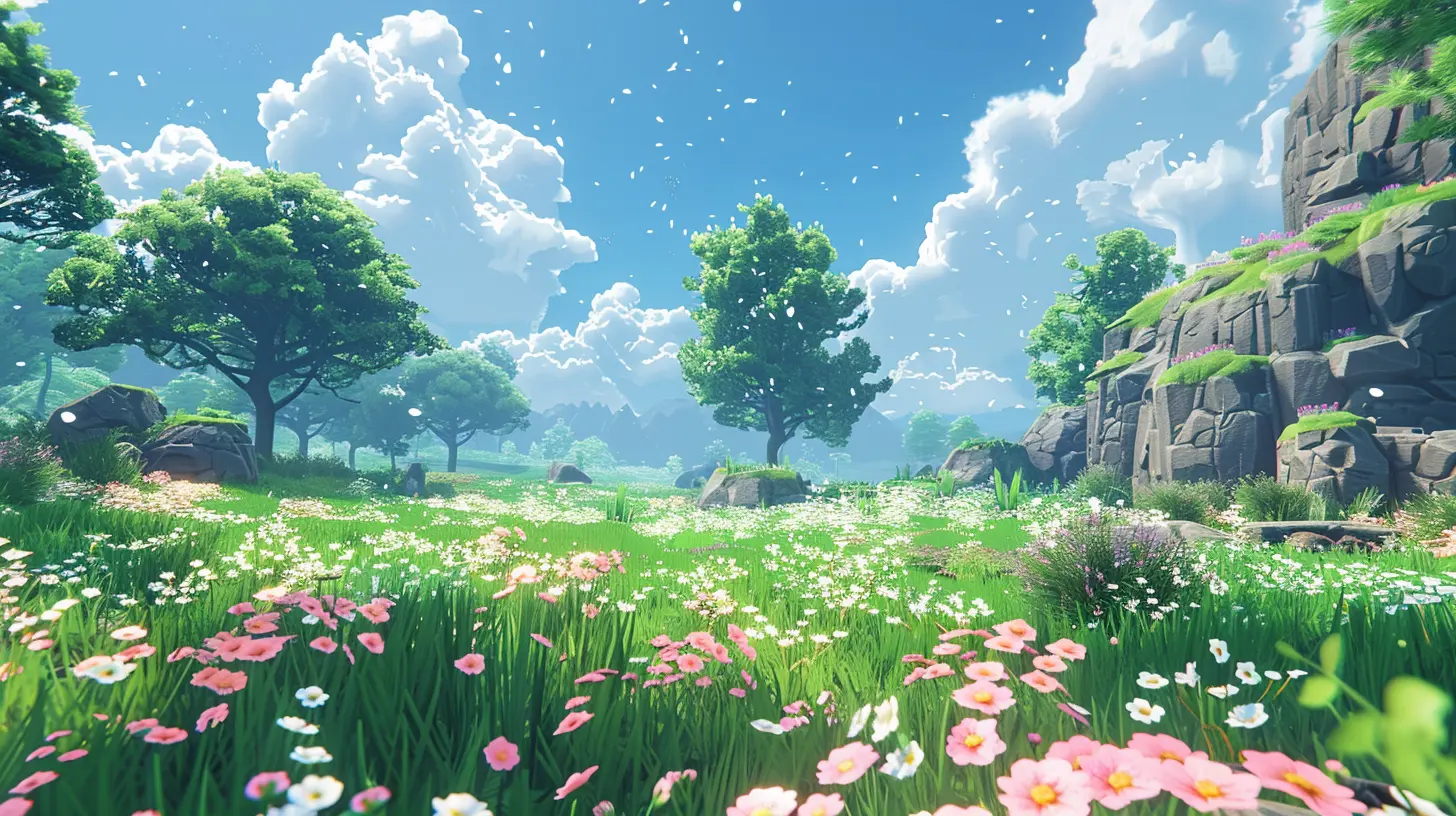
The Psychology Behind Crafting Systems
Why do we keep coming back for more? What is it about crafting systems that keeps us glued to our screens?The Flow State
Crafting pulls us into a state of “flow”—that sweet spot where time doesn’t exist, and you’re completely absorbed in what you’re doing. Collect, craft, build, repeat. It’s oddly meditative, isn’t it?Problem-Solving and Creativity
Crafting systems are puzzles in disguise. What can I make with this material? How do I build this structure with limited resources? These systems tickle our problem-solving brains while leaving plenty of room for creativity. It’s like playing with LEGO bricks, except in a virtual world.The Reward Loop
Crafting systems are masters of the reward loop. You put in the effort (collecting materials), get a reward (crafted item), and then use that reward to achieve something bigger (build something cool). It’s a cycle that keeps us coming back for just "one more" crafting session.Iconic Sandbox Games That Nail Crafting
Alright, we’ve talked a lot about crafting systems, but which games actually get it right? Here are a few that stand out.1. Minecraft
You can’t have a conversation about crafting systems without mentioning Minecraft. It’s the OG of sandbox crafting, inspiring an entire generation of games. The crafting system is simple yet deep, making it accessible for newbies while offering enough complexity for veterans.2. Terraria
Terraria leans heavily into exploration-based crafting. You dig, you discover, you craft. Its vast array of items and crafting recipes means there’s always something new to work toward.3. ARK: Survival Evolved
This one ups the stakes by combining crafting with survival mechanics. You’re not just crafting for fun; you’re crafting to stay alive. Weapons, tools, shelters, even dino saddles—it’s all about survival of the craftiest.4. No Man’s Sky
In No Man’s Sky, crafting is intertwined with exploration. You’re scavenging alien worlds for resources, crafting gear and upgrades, and even building bases on far-off planets. It's crafting on a galactic scale.5. Valheim
This Viking-themed sandbox game puts a heavy emphasis on crafting for survival and progression. The crafting system ties neatly into the game’s overall progression curve, making every new recipe feel meaningful.How Crafting Can Evolve in the Future
So, where do we go from here? Crafting systems are already amazing, but there’s always room for innovation. Here are some ideas for how they could evolve:- AI-Powered Crafting Assistance: Imagine AI helping you brainstorm crafting ideas or suggesting new combinations you hadn’t thought of.
- More Realistic Physics: Games like Kerbal Space Program have already dabbled here, but imagine crafting systems where physics play an even bigger role.
- Community Collaboration: What if games allowed players to craft collaboratively in real-time, building massive projects together seamlessly?
- Dynamic Crafting Trees: Instead of static recipes, crafting systems could adapt and evolve based on how you play the game.
The future is bright, and honestly, I can’t wait to see what developers come up with next.
Wrapping It All Up
Crafting systems are the unsung heroes of sandbox games. They’re the engine that powers creativity, the glue that holds these digital playgrounds together. They reward us with a sense of accomplishment, fuel our imagination, and keep us coming back for more.Whether you’re piecing together a pixel-perfect masterpiece in Minecraft or building a fully functioning spaceship in Scrap Mechanic, crafting systems make it all possible. So, next time you’re knee-deep in crafting materials and wondering why you’re so hooked, just remember—this is the building block of your creativity at work.
all images in this post were generated using AI tools
Category:
Sandbox GamesAuthor:

Pascal Jennings
Discussion
rate this article
1 comments
Desiree Bailey
Crafting systems are the heartbeat of sandbox games, fueling creativity and player agency. By analyzing these mechanics, we unlock deeper insights into what makes these games truly engaging.
October 1, 2025 at 4:30 AM

Pascal Jennings
Absolutely! Crafting systems are essential for enhancing player creativity and engagement, serving as a foundational element in the sandbox experience.
